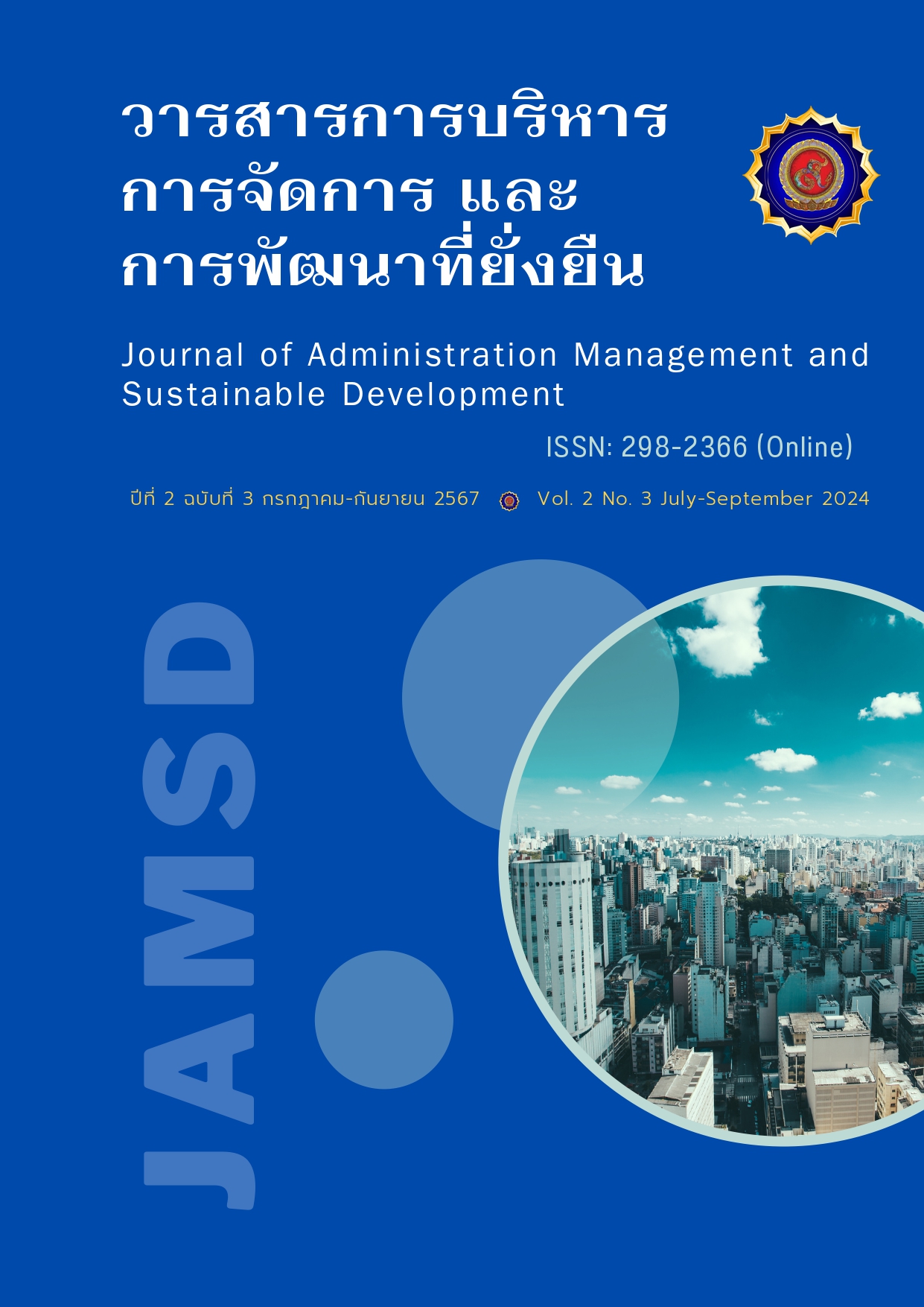New public management: towards results people can feel
Keywords:
new public management, NPMAbstract
New public management focuses on results that people receive, sets clear and measurable indicators, continuously monitors and evaluates results, has an incentive system for government agencies to achieve their goals, and develops an efficient performance measurement system that emphasizes measurement of results rather than methods for using measurement results to develop work. The system discloses measurement results to the public, decentralizes power from the central government to local government agencies, grants management freedom to local government agencies, develops a system for monitoring and following up on results, and allows the public to participate in decision-making. It develops a system for listening to public opinions, allows the public to participate in monitoring government work to develop an e-government system, uses technology to increase efficiency in providing services to the public via online channels, and develops the skills and knowledge of government personnel. It promotes teamwork, motivates government personnel to work effectively to prevent and suppress corruption, promotes transparency and accountability, develops an internal audit system, builds cooperation with the private sector, builds cooperation with civil society, builds cooperation with international organizations, and manages budgets efficiently. It increases the efficiency of tax collection, reduces government expenses, develops up-to-date laws, reduces complicated procedures and regulations, and promotes competition.
References
กองยุทธศาสตร์และแผนงาน. (2562). การจัดการภาครัฐยุคใหม่: แนวทางการปฏิรูปเพื่อการพัฒนาที่ยั่งยืน. กรุงเทพฯ: กรมการปกครอง กระทรวงมหาดไทย.
ประโยชน์ ส่งกลิ่น. (2552). ผลที่ไม่คาดหมายของการปฏิรูปตามแนวการจัดการภาครัฐแนวใหม่. ในปิยพงษ์ บุษบงก์ (บรรณาธิการ), สรรสาระการบริหารรัฐกิจและกิจการสาธารณะ. ขอนแก่น: คลังนานาวิทยา.
เรืองวิทย์ เกษสุวรรณ. (2545). การปฏิรูประบบราชการภายใต้กระแสการจัดการภาครัฐแนวใหม่และข้อวิพากษ์. กรุงเทพฯ: บพิธการพิมพ์.
เรืองวิทย์ เกษสุวรรณ. (2556). การจัดการภาครัฐแนวใหม่. กรุงเทพฯ: บพิธการพิมพ์.
Anderson, J. (2021). Public administration reform: Performance evaluation in public sector. Public Policy Journal.
Barzelay, M. (2002). New public management: Invitation to a cosmopolitan dialogue. Hitotsubashi Business Review, 49(4), 27-34.
Christensen, T., & Lægreid, P. (2001). New Public Management: The Transformation of Ideas and Practice. Ashgate.
Dunleavy, P., Margetts, H., Bastow, S., & Tinkler, J. (2006). Digital Era Governance: IT Corporations, the State, and E-Government. Oxford University Press.
Denhardt, J. V., & Denhardt, R. B. (2015). The new public service: Serving, not steering. Routledge.
Gruening, G. (2001). Origin and Theoretical Basis of New Public Management. International Public Management Journal, 4(1), 1-25.
Hood, C. (1991). A public management for all seasons? Public Administration, 69(1), 3-19.
Hood, C. (1995). Contemporary public management: A new global paradigm? Public Policy and Administration, 10(2), 104-117.
Hughes, O. E. (2012). Public management and administration: An introduction. Macmillan International Higher Education.
Jones, A., & Brown, K. (2019). Public-private partnerships in modern governance: Efficiency and cost-saving strategies. Governance and Economics Review, 12(3), 45-68.
Osborne, D., & Gaebler, T. (1992). Reinventing government: How the entrepreneurial spirit is transforming the public sector. Addison-Wesley.
Pierre, J. (1995). The Marketization of the State: Citizen, Consumer, and the emergence of the Public Market. In B. G. Peters & Savoie D. J. (Eds.), Governance in a Changing Environment. Canada: Mc Grill Queen’s University Press.
Peters, B. G., & Pierre, J. (1998). Governance without government? Rethinking public administration. Journal of Public Administration Research and Theory, 8(2), 223-243.
Peters, B. G., & Pierre, J. (2018). Governance, politics, and the state: Transparency and accountability in public administration. Journal of Public Policy, 22(1), 78-94.
Pollitt, C., & Bouckaert, G. (2011). Public Management Reform: A Comparative Analysis—New Public Management, Governance, and the Neo-Weberian State (3rd ed.). Oxford University Press.
Smith, R. (2020). Decentralization and local government autonomy: Enhancing public service delivery. Political Science Review, 15(2), 112-128.






